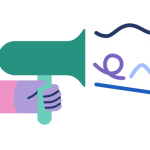Rozan’s approach is holistic, and interventions are framed from a prevention (awareness-raising, mobilization, skills-building), protection (law enforcement, service delivery, and advocacy) perspective. All Rozan programs are structured around one or more of the following three core primary strategies: awareness raising; psychological support and referral; and capacity building and training. However, the relative emphasis on each varies from program to program depending upon the needs assessed, emerging opportunities and program’s maturity and capacity. Two new and distinct strategies are now emerging; these include research and advocacy.
Awareness Raising:
Recognizing that the issues that Rozan works with are often socially tabooed or neglected, a core area of intervention recognized by Rozan is raising consciousness or awareness. The inability of the community to recognize these issues as important severely undermines its ability to strategize or address these problems. Rozan recognizes that awareness and ownership must be raised and work has to be done within communities, with all key stakeholders and across all classes. Also recognizing the importance of increasing ownership within the community on these issues, Rozan considers it important to involve volunteers in this work.
Psychological Support and Referral:
Emotional and mental health is an essential service that Rozan provides. Its centrality draws from the fact that we work with vulnerable groups and while breaking the silence and mobilizing women, children, youth and men on social injustices like violence is essential, it must be done in a way in which individuals feel supported and have opportunities to heal emotionally, express and clarify confusions. All campaigning done with a view to raise awareness on these issues wherever possible must be supported by counseling services (phone, email or letter) or referral support.
Training and Capacity Building:
A strategy that has grown considerably within Rozan is training and capacity building. Two distinctions in terms of groups trained are: individuals (these could be members of the community or professionals e.g. the media) or institutions (police department, women centers or CBO/NGO’s). Where in the former case, it serves to deepen Rozan’s awareness raising agenda and aims to create change agents within the community, in the latter it is also used as a tool to systematically enhance capacity of key state or non state institutions to work effectively on issues that are important to Rozan.





